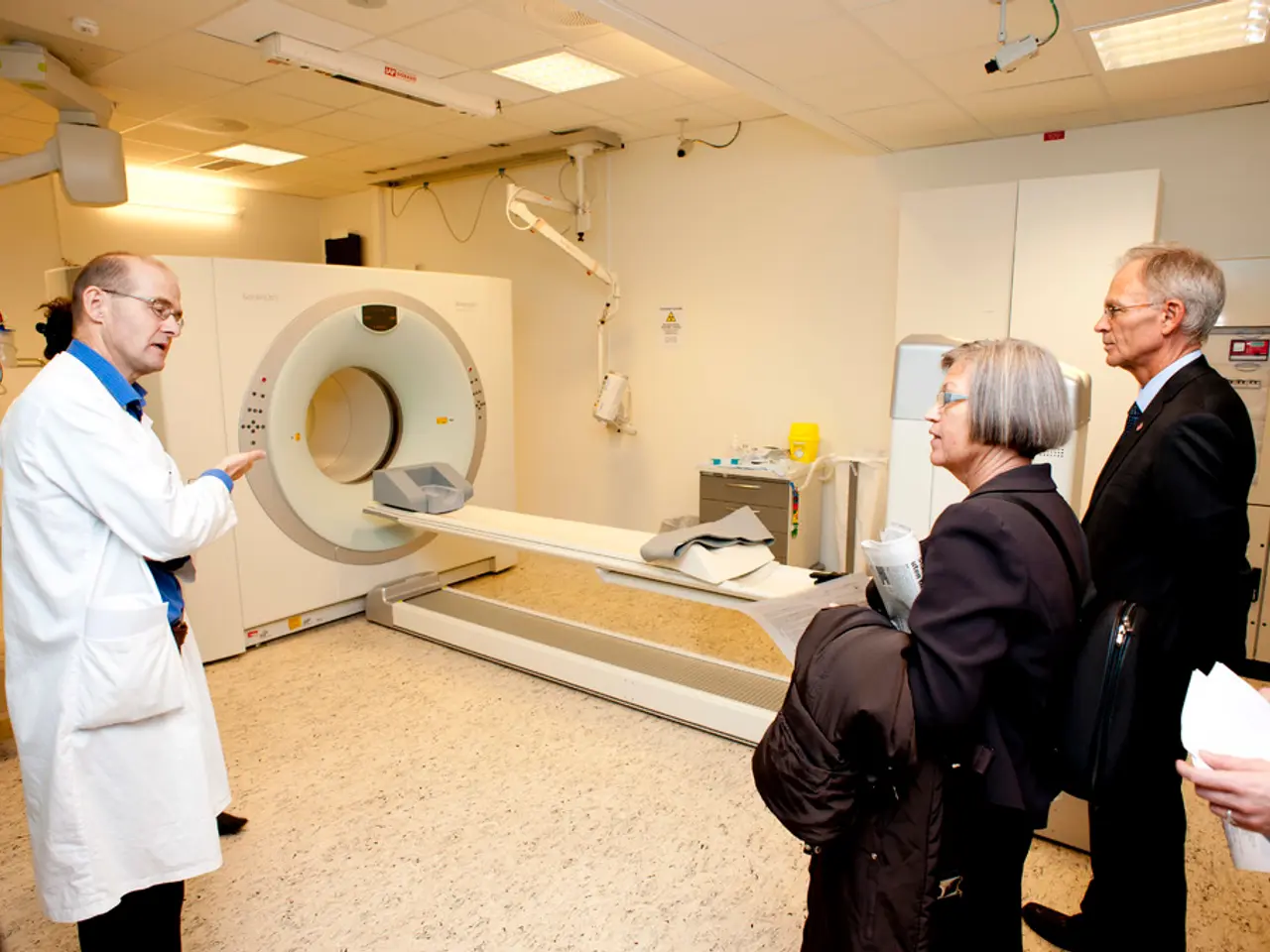AI Applications in Medical Field: An Overview
Artificial Intelligence (AI) is revolutionising the healthcare sector, offering numerous benefits for both medical professionals and patients. By freeing up time for physicians to practice medicine, minimising cognitive burden and fatigue, AI is poised to significantly improve the quality and accessibility of healthcare services.
AI can be categorised based on two main perspectives: the level of intelligence or capability, and the type or functionality of the system. Here's an overview of the various types under these classifications.
---
### Intelligence Level (Capability-Based Classification)
#### Narrow AI (Artificial Narrow Intelligence, ANI)
This form of AI is designed to perform specific tasks, such as facial recognition systems, recommendation algorithms, and voice assistants. It operates within a limited pre-defined scope and cannot perform beyond its specialisation.
#### General AI (Artificial General Intelligence, AGI)
AGI is a type of AI that can understand, learn, and apply intelligence across a wide range of tasks at a human-like level. It can autonomously reason, solve problems, and adapt in varied environments, but remains hypothetical and under research.
#### Superintelligent AI (Artificial Superintelligence, ASI)
ASI refers to a future AI that surpasses human intelligence in all respects—creativity, problem-solving, decision-making, and emotional intelligence. While this form remains theoretical, its potential implications for healthcare are vast.
---
### System Functionality (Functionality-Based Classification)
#### Reactive Machines
These are the most basic AI systems that respond to specific inputs without memory or learning capability. They do not store past experiences.
#### Limited Memory AI
This AI type can use past data temporarily to inform its current decisions. It can learn from recent experiences but does not have permanent memory.
#### Theory of Mind AI
This conceptual AI aims to understand human emotions, beliefs, and intentions, enabling more sophisticated and emotionally aware interactions.
#### Self-Aware AI
This is the theoretical highest stage where AI has consciousness, self-awareness, and understanding of its own state.
---
### Specialized Subfields
#### Generative AI
A specialized subfield of AI focused on creating new, original content by learning patterns in existing data. Examples include text generators like ChatGPT, image synthesis, music composition, and video creation.
#### AI Agents & Agentic AI
AI systems designed to autonomously perceive, decide, and act towards goals. Agentic AI involves multiple cooperating agents that can perform complex, multi-step tasks independently.
#### Multimodal AI
These systems process and integrate multiple data types—text, images, audio, etc.—to achieve more comprehensive understanding and functionality than single-modality AI.
---
AI is extensively used in healthcare imaging, clinical documentation, outpatient monitoring, and more. For instance, Nuance's Precision Imaging Network processes images and provides suggestions to radiologists, while Nuance's Dragon Ambient eXperience records and transcribes doctor-patient interactions and writes a comprehensive clinical summary in the electronic health record.
AI-powered robotics, such as the da Vinci Surgical System, are used for minimally invasive procedures, providing precision during surgeries. Virtual nursing platforms use AI to monitor large numbers of patients, alerting in-person care teams when necessary. AI-driven systems are also being developed to automate decision support for providers, ensuring critical patients receive the medications they truly need.
As AI continues to advance, it's crucial to establish a healthcare-specific code of ethics and a regulatory environment to ensure the safe and clinically proven use of AI in healthcare. AI has the potential to significantly improve clinical efficiencies, prevent errors, and advance treatments, making it an invaluable tool in the modern healthcare landscape.
- Artificial Intelligence (AI) in the healthcare sector also encompasses applications of Generative AI, such as text generators like ChatGPT, that can create new, original content and learn patterns from existing data to assist medical professionals and enhance diagnosis and treatment processes.
- Beyond imaging and clinical documentation, AI is increasingly being applied in the development of AI-driven systems for automating decision support for providers, which can help ensure that critical patients receive the precise medications they need, thus reducing errors and streamlining healthcare service delivery.




